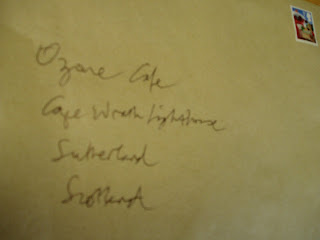Bike racing and I go back many years. As a 16 yr old schoolboy in the very early 70's I remember the excitement of visiting the Skol 6 Day indoor track racing at Wembley. The thrills and spills on the steeply banked boards. Blood, sweat and gears.
It wasn't until I reached my mid thirties that I thought about myself taking part in bike racing. I had always enjoyed bike rides, indeed one day when I was about 20 I cycled to my nan's house, from Colchester to Grayshott, over 100 miles. Approaching 40 I was aware that my fitness was poor, so I dusted-down and oiled-up my fabulous old lightweight racing bike, and put some miles in, and then some more miles, and then a bit more on top of that . Steadily I improved my fitness and lost weight. Compared with most people I met on the road I was fast and furious, so I paired up with my friend Paul Mason for chain-gang rides under the banner "Racing Team Last". I decided to join the local bike racing club Colchester Rovers to see how quick I had become.
It wasn't until I reached my mid thirties that I thought about myself taking part in bike racing. I had always enjoyed bike rides, indeed one day when I was about 20 I cycled to my nan's house, from Colchester to Grayshott, over 100 miles. Approaching 40 I was aware that my fitness was poor, so I dusted-down and oiled-up my fabulous old lightweight racing bike, and put some miles in, and then some more miles, and then a bit more on top of that . Steadily I improved my fitness and lost weight. Compared with most people I met on the road I was fast and furious, so I paired up with my friend Paul Mason for chain-gang rides under the banner "Racing Team Last". I decided to join the local bike racing club Colchester Rovers to see how quick I had become.
First lesson from competitive sport. Not very fast at all. But I persevered, and eventually became barely adequate. Although I wasn't going to climb high in the club rankings, my efforts were recognised and I won an award for "most trying cyclist", which I think was a compliment. I became very fit, felt full of vitality, and developed a resting pulse in the low thirties. If I had gone to the Doctor with that, I would have been pronounced dead.
As a spectator I followed the sport, mainly at local and sometimes at national and international events. I didn't get much opportunity to travel at the time, but remember a trip where I cycled in the Alps, uphill for 13 consecutive miles, and I felt good as I crested the top. Coming down was good too, as dusk fell, and I got warmth from an old newspaper that I stuffed up my jumper, just like the pros!
As a spectator I followed the sport, mainly at local and sometimes at national and international events. I didn't get much opportunity to travel at the time, but remember a trip where I cycled in the Alps, uphill for 13 consecutive miles, and I felt good as I crested the top. Coming down was good too, as dusk fell, and I got warmth from an old newspaper that I stuffed up my jumper, just like the pros!
I became obsessed with the Tour de France, overlooking the doping aspect of the sport as I swallowed the propaganda that these were highly tested and honourable athletes. Somewhere along the way I fell out of love with the sport. My private life was going through big changes and I realised I couldn't keep cycling off into the distance. Also, scandals like the Festina affair broke, suggesting that many of my heroes were doping cheats. I became involved with anti-doping organisations and individuals, and pursued some stories about doping as a freelance writer. I did a one-man demonstration against the cheats, when the Tour de France started in London. (pic above) I got some national media coverage, but I don't think the sport was listening to me.
I got to know a lot about the darker side of bicycle racing, and the sport and I went adrift. I despised many aspects of the drug takers, looking at the morals, ethics, and health issues. I felt great sympathy for the riders that were trying to ride clean. It seemed that no one wanted to face up to the truth - the sport authorities, the riders, the sponsors, the media, and the fans. So I turned my back on the sport, and no one missed me, with my modest plamares of some mediocre time trials and "most trying loser" trophy.
I was still riding mainly locally, but also for fun Land's End to John o'Groats, and another trip of 500 miles of Scotland coast to coast including the Corrieyairick Pass off road in the Scottish Highlands. Plus I was still using the bicycle for transport, but utility cycling is another story. So that's my glorious cycle sport career, an interest that had faded away ... but the embers never quite went out. For Bike racing Part 2 I'll cover what has changed, why it's back in my life, and some new heroes.
I was still riding mainly locally, but also for fun Land's End to John o'Groats, and another trip of 500 miles of Scotland coast to coast including the Corrieyairick Pass off road in the Scottish Highlands. Plus I was still using the bicycle for transport, but utility cycling is another story. So that's my glorious cycle sport career, an interest that had faded away ... but the embers never quite went out. For Bike racing Part 2 I'll cover what has changed, why it's back in my life, and some new heroes.






